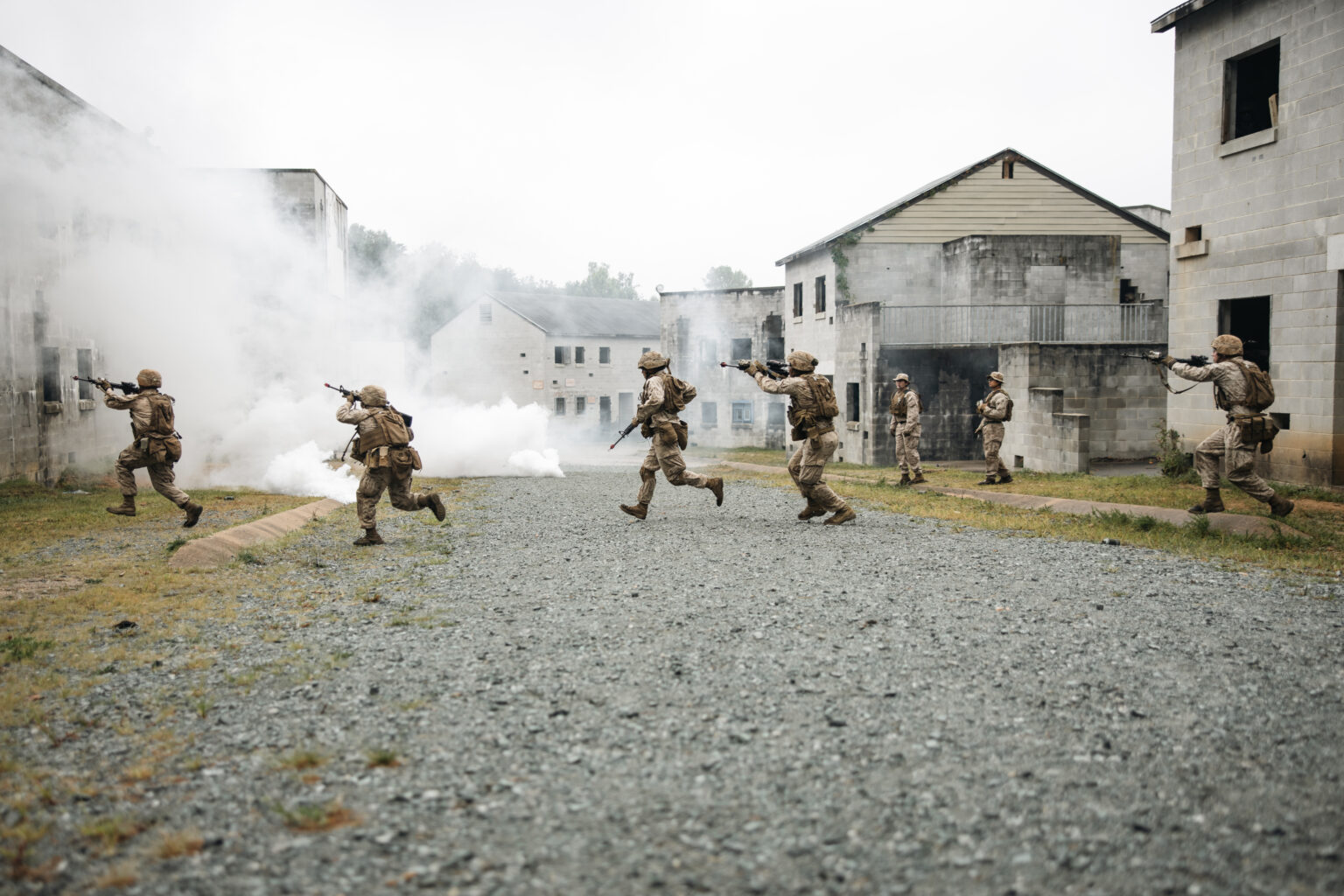By Pearl Matibe|| 29 September 2025
Bright and very early on a September morning, I travelled south from Washington, D.C., to Quantico, Virginia—about 35 kilometres away—at the invitation of the U.S. Department of State and the U.S. Marine Corps’ Training and Education Command (TECOM).
All the clearances had been handled in advance. My hosts, including Captain Jesse Frisbe, the protocol officer for The Basic School, greeted me at the gate and drove me onto one of America’s most secure military bases.
Quantico is not just a base. It is the starting point for every U.S. Marine for the past 108 years. The vehicle pulled past dense bush, staged towns also with religious buildings and service facilities, staged checkpoints, then deeper into the complex. This place is home to the FBI Academy and NCIS.
But my focus was on the military training side; The Basic School (TBS), a kind of Marine university where newly commissioned officers spend six months learning the foundations of their profession.
TBS looks, in some ways, like a campus. There are residence halls and even a bar. “A lot of the folks that come through here are just recently college students,” explained Lt. Col. Nathan Dmochowski, operations officer for the school. “Every Marine does a six-month-long training in learning how to be an officer in the Marine Corps. No other service does that, and I’m not aware of any other service in the world that does it.”
Dmochowski added something else that stuck with me. He said, “A Marine is a Marine 24/7. You don’t take the uniform off when you go home.” In other words, leadership and responsibility don’t stop at the gates of Quantico.
From the classroom curriculum, my day proceeded to the field training. I was taken onto a road that led past many mock towns and into a part of the military installation built only for warfighting training. One of those is a mock town where learning happens under fire.
Officially, they call it MOUT town—Military Operations on Urbanized Terrain. The storefronts bore signs painted in a foreign language, translated meaning: “bank,” “police.” The city’s buildings created the sense of entering a city to be defended, after civilian displacement.
Before we went further, Captain Frisbe reminded me of precautions, as I was nearly embedded. He did not want me going anywhere that would risk injury, and my presence could not impede the training. He handed me ear protection. Then the military drill began.
Smoke canisters exploded, filling the streets until, at one point, I could barely see anything. The metallic scent of spent casings hung in the air. Dust clung to my clothes. A quadcopter buzzed overhead, surveilling the rooftops of 3-story buildings. Blank rounds cracked from weapons’ rapid-fire exchanges. Marines in full combat gear moved through several city buildings; some were defended from being seized, while another team of Marines attempted to seize and take control, all while instructors shouted commands above the noise. For a moment, the staged town felt like a real battlefield.
Captain Micah Thomas, company commander for Company C, explained to me the training progression of his fellow Marines. He said, “Early on in the program, they learn to analyze their enemies—their capabilities and their limits. From there, it’s individual marksmanship, squad-level tactics, and communication. Then it builds up to live-fire platoon maneuvers and advanced MOUT exercises.” His point was simple. Every officer must first be a rifleman. Every Marine must be ready to lead under fire.
Quantico’s mock towns may be in Virginia, but the reality they simulate is familiar when cities like Goma or Khartoum become vulnerable in times of crisis. Africa has seen it repeatedly. In Cabo Delgado’s Mocímboa da Praia, in Bukavu and Goma in the DRC, in Mogadishu, in Sudan’s capital, the battlefield has shifted from rural to urban. Urban conflicts disrupt water, power, hospitals, and homes—turning entire cities into arenas of survival.
Technology adds another layer. At Quantico, UAVs—drones small enough to fly between walls—are integrated into their training. In Africa, both militaries and armed groups are increasingly adapting drones for urban combat. What was once experimental has become normal. Serious, realistic, and ethical training matters everywhere, whether in America or in Africa.
As I left MOUT town, the smoke lingered in my hair. The sound of shouted orders still echoed in my ears. The experience made one thing unmistakably clear: urban conflict is messy, immediate, and costly. And for Africa, where cities are growing and conflicts increasingly play out in crowded streets, the question is urgent.
What I saw at Quantico suggests one answer. Leadership under stress is not built in the moment of crisis—it is forged beforehand, in training grounds where mistakes can be made and learned from. The rest, as Africa knows too well, is left to politics and history.
Pearl Matibe is a Washington, D.C.-based geopolitical analyst and correspondent covering Congress, the Pentagon, State Department, and White House, with expertise in foreign and defence policy. Follow her on Twitter: @PearlMatibe.


![How to get title deeds for farms in Zimbabwe [EXPLANATION]](https://openparly.com/wp-content/uploads/2025/09/Masuka-420x280.jpg)
